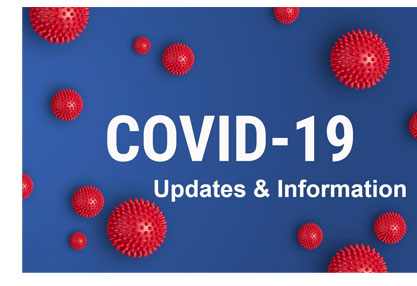THIS ISSUE'S HEADLINES
Rhode Island’s New Wage Law – Are You Ready?
What To Do When Faced with a Civil Investigative Demand
Rhode Island Supreme Court Holds Town of Johnston Liable for Damage Caused to Private Sewer Line
Your Money: Charitable Remainder Trusts - A Way to Convert Appreciated Property Into An Income Stream for Retirement and More
Stay Informed — PLDO COVID-19 Resource Library

RHODE ISLAND’S NEW WAGE LAW – ARE YOU READY?
 Rhode Island employers need to prepare now for a new and sweeping law that goes into effect on New Year’s Day 2023. This comprehensive law is designed to promote pay equity and fairness in the workplace by providing employees with more rights and protections relating to their wages, how those wages are set, and preventing discrimination on the basis of protected characteristics. The new law has numerous requirements that will drastically change how employers recruit, hire, and pay their employees, as well as impose substantial penalties for violations. Rhode Island employers need to prepare now for a new and sweeping law that goes into effect on New Year’s Day 2023. This comprehensive law is designed to promote pay equity and fairness in the workplace by providing employees with more rights and protections relating to their wages, how those wages are set, and preventing discrimination on the basis of protected characteristics. The new law has numerous requirements that will drastically change how employers recruit, hire, and pay their employees, as well as impose substantial penalties for violations.
PLDO Partner Brian J. Lamoureux highlights key components of the law to help employers gain a deeper understanding and plan ahead to be in compliance in his latest advisory, Rhode Island’s New Wage Law – Are You Ready?
The advisory addresses such topics as the pending expansion of classes of workers protected from wage discrimination under the new law, wage transparency including changes relating to job applicants and the process of discussing wages with applicants, and certain “safe harbor” provisions that employers can take advantage of under the new law, among others. To read the advisory, click the title above or here. For further information, please contact Attorney Lamoureux at 401-824-5100 or email bjl@pldolaw.com.
[back to top]

WHAT TO DO WHEN FACED WITH A CIVIL INVESTIGATIVE DEMAND
 Companies are generally familiar with subpoenas. Civil Investigative Demands (“CID”), however, are a less common form of administrative subpoena issued by certain federal agencies like the Federal Trade Commission (“FTC”) or the U.S. Department of Justice (“DOJ”). A CID is a pre-litigation tool that federal agencies can use to request documents, answers to specific questions, and even to compel depositions. Executive agencies use CIDs in part because they don’t require court approval to issue. Companies are generally familiar with subpoenas. Civil Investigative Demands (“CID”), however, are a less common form of administrative subpoena issued by certain federal agencies like the Federal Trade Commission (“FTC”) or the U.S. Department of Justice (“DOJ”). A CID is a pre-litigation tool that federal agencies can use to request documents, answers to specific questions, and even to compel depositions. Executive agencies use CIDs in part because they don’t require court approval to issue.
CIDs must be taken as seriously as a normal subpoena. However, because agencies have the discretion to issue CIDs without court approval, it is sometimes assumed that the recipient has no way to object. This is not true. First, recipients of CIDs can contact the issuing agency through counsel and attempt to limit the scope of the same. Since CIDs do not undergo court scrutiny prior to issuance, they may be more inclined to be overly broad and overreaching. Counsel can often effectively negotiate reductions in scope and subject matter that significantly reduce the cost and burden on the recipient. Second, a particular CID may be a good candidate for a Motion to Quash brought before the appropriate court. Admittedly, a Motion to Quash faces a high standard. However, a CID must also meet certain requirements. The CID must be reasonably relevant and not unduly burdensome. Courts are more likely to grant Motions to Quash when the information sought by the CID is already in the agency’s possession.
In sum, a CID must be taken seriously. But responding to an overly broad request can impose significant unnecessary costs. Moreover, if a recipient is or may become a target of an agency’s investigation, the recipient may be well served to take steps to limit the scope of the CID as much as possible. For more information on CIDs or other business matters, please contact PLDO Partner Joel K. Goloskie at jgoloskie@pldolaw.com or Associate Paige E. Macnie at pmacnie@pldolaw.com, or call 401-824-5100.
[back to top]

RHODE ISLAND SUPREME COURT HOLDS TOWN OF JOHNSTON LIABLE FOR DAMAGE CAUSED TO PRIVATE SEWER LINE
 In a recent Rhode Island Supreme Court decision, the Court once again dealt with the difference between governmental and proprietary actions by a governmental body, the importance being whether the governmental body can be held liable for its actions or not. In Johnston Equities Associates, LP, et al. v. Town of Johnston et al., the Court was confronted with a situation where the Town of Johnston had connected its public sewer service line to the private sewer line of the plaintiff without authorization. Throughout the years, the private sewer line experienced issues, causing damages to the plaintiff and its property. It was finally discovered that the Town had connected its public sewer line to the private sewer of plaintiff, and the plaintiff sued the Town. In a recent Rhode Island Supreme Court decision, the Court once again dealt with the difference between governmental and proprietary actions by a governmental body, the importance being whether the governmental body can be held liable for its actions or not. In Johnston Equities Associates, LP, et al. v. Town of Johnston et al., the Court was confronted with a situation where the Town of Johnston had connected its public sewer service line to the private sewer line of the plaintiff without authorization. Throughout the years, the private sewer line experienced issues, causing damages to the plaintiff and its property. It was finally discovered that the Town had connected its public sewer line to the private sewer of plaintiff, and the plaintiff sued the Town.
The Town argued that as a governmental entity, it should be protected by the statutory tort cap which caps damage awards at $100,000 when the damages are a result of a governmental function as opposed to a proprietary function. The Court noted that proprietary functions are those which are normally performed by private individuals. Diving deeper, the Court noted that the design and construction of a sewer system is a governmental function whereas the actions and maintenance that come after completion of the system are proprietary. In this particular action, the Court determined that by permitting its sewage to flow into the plaintiff’s private line, the Town wrongfully operated the sewage system. This wrongful operation was a proprietary function that did not involve the design or construction of the sewage line. Accordingly, the Court determined that the statutory cap on damages was not applicable, and likewise that the public duty doctrine did not apply either (which necessitates a similar governmental vs. proprietary analysis).
Of note, the Court stated that “[w]e recognize the somewhat murky nature of deciphering the applicability of the public duty doctrine.” Furthermore, one of the three justices deciding the case issued a concurring opinion which stated in totality: “On the facts of this case, as they were presented at trial, I am able to concur, albeit dubitante.” Dubitante is a legal maxim meaning that the judge has their doubts about the decision but cannot say that it is wrong. Taken together, one can imagine the difficulty in navigating the legal world of the statutory tort cap and the public duty doctrine.
PLDO attorneys are well-versed in providing counsel in complex “murky” areas of the law. If you need assistance or would like further information, please contact PLDO Partner Patrick J. McBurney at 401-824-5100 or email pmcburney@pldolaw.com.
[back to top]

YOUR MONEY: CHARITABLE REMAINDER TRUSTS
A Way To Convert Appreciated Property Into An Income Stream For Retirement And More
 Today, there are more than 55 million Americans aged 65 and older, and each day, more than 10,000 join their ranks. Since interest rates and cash yields on traditional investments remain low, individuals approaching retirement are shifting from an investment strategy focused on asset growth to one centered on producing income for a retirement period that may span 20 years or more. Today, there are more than 55 million Americans aged 65 and older, and each day, more than 10,000 join their ranks. Since interest rates and cash yields on traditional investments remain low, individuals approaching retirement are shifting from an investment strategy focused on asset growth to one centered on producing income for a retirement period that may span 20 years or more.
A Charitable Remainder Trust (“CRT”) is a planning option that can be beneficial to those with highly appreciated property, large unrealized capital gains and who need or want liquidity now. It is a powerful tool that combines the desire of clients who own highly appreciated property to minimize income, capital gains, and estate/gift taxes, while making significant charitable gifts.
To learn about the numerous advantages of a CRT, read PLDO Attorney Jason P. Jones' Advisory, Your Money - Charitable Remainder Trusts. A Way to Convert Appreciated Property Into An Income Stream for Retirement and More. (LINK TO COME) For further information on CRTs and other estate and trust planning strategies, please contact Attorney Jones in our Boca Raton, Florida office at 561-362-2030 or email jjones@pldolaw.com.
[back to top]

 STAY INFORMED – PLDO COVID-19 RESOURCE LIBRARY STAY INFORMED – PLDO COVID-19 RESOURCE LIBRARY
PLDO’s team of attorneys continue to add updates and advisories regarding the pandemic and its impact on families, businesses and organizations. To access our COVID-19 Resource Library, click here.
[back to top]
|




 Rhode Island employers need to prepare now for a new and sweeping law that goes into effect on New Year’s Day 2023. This comprehensive law is designed to promote pay equity and fairness in the workplace by providing employees with more rights and protections relating to their wages, how those wages are set, and preventing discrimination on the basis of protected characteristics. The new law has numerous requirements that will drastically change how employers recruit, hire, and pay their employees, as well as impose substantial penalties for violations.
Rhode Island employers need to prepare now for a new and sweeping law that goes into effect on New Year’s Day 2023. This comprehensive law is designed to promote pay equity and fairness in the workplace by providing employees with more rights and protections relating to their wages, how those wages are set, and preventing discrimination on the basis of protected characteristics. The new law has numerous requirements that will drastically change how employers recruit, hire, and pay their employees, as well as impose substantial penalties for violations. Companies are generally familiar with subpoenas. Civil Investigative Demands (“CID”), however, are a less common form of administrative subpoena issued by certain federal agencies like the Federal Trade Commission (“FTC”) or the U.S. Department of Justice (“DOJ”). A CID is a pre-litigation tool that federal agencies can use to request documents, answers to specific questions, and even to compel depositions. Executive agencies use CIDs in part because they don’t require court approval to issue.
Companies are generally familiar with subpoenas. Civil Investigative Demands (“CID”), however, are a less common form of administrative subpoena issued by certain federal agencies like the Federal Trade Commission (“FTC”) or the U.S. Department of Justice (“DOJ”). A CID is a pre-litigation tool that federal agencies can use to request documents, answers to specific questions, and even to compel depositions. Executive agencies use CIDs in part because they don’t require court approval to issue. In a recent Rhode Island Supreme Court decision, the Court once again dealt with the difference between governmental and proprietary actions by a governmental body, the importance being whether the governmental body can be held liable for its actions or not. In Johnston Equities Associates, LP, et al. v. Town of Johnston et al., the Court was confronted with a situation where the Town of Johnston had connected its public sewer service line to the private sewer line of the plaintiff without authorization. Throughout the years, the private sewer line experienced issues, causing damages to the plaintiff and its property. It was finally discovered that the Town had connected its public sewer line to the private sewer of plaintiff, and the plaintiff sued the Town.
In a recent Rhode Island Supreme Court decision, the Court once again dealt with the difference between governmental and proprietary actions by a governmental body, the importance being whether the governmental body can be held liable for its actions or not. In Johnston Equities Associates, LP, et al. v. Town of Johnston et al., the Court was confronted with a situation where the Town of Johnston had connected its public sewer service line to the private sewer line of the plaintiff without authorization. Throughout the years, the private sewer line experienced issues, causing damages to the plaintiff and its property. It was finally discovered that the Town had connected its public sewer line to the private sewer of plaintiff, and the plaintiff sued the Town. Today, there are more than 55 million Americans aged 65 and older, and each day, more than 10,000 join their ranks. Since interest rates and cash yields on traditional investments remain low, individuals approaching retirement are shifting from an investment strategy focused on asset growth to one centered on producing income for a retirement period that may span 20 years or more.
Today, there are more than 55 million Americans aged 65 and older, and each day, more than 10,000 join their ranks. Since interest rates and cash yields on traditional investments remain low, individuals approaching retirement are shifting from an investment strategy focused on asset growth to one centered on producing income for a retirement period that may span 20 years or more. 